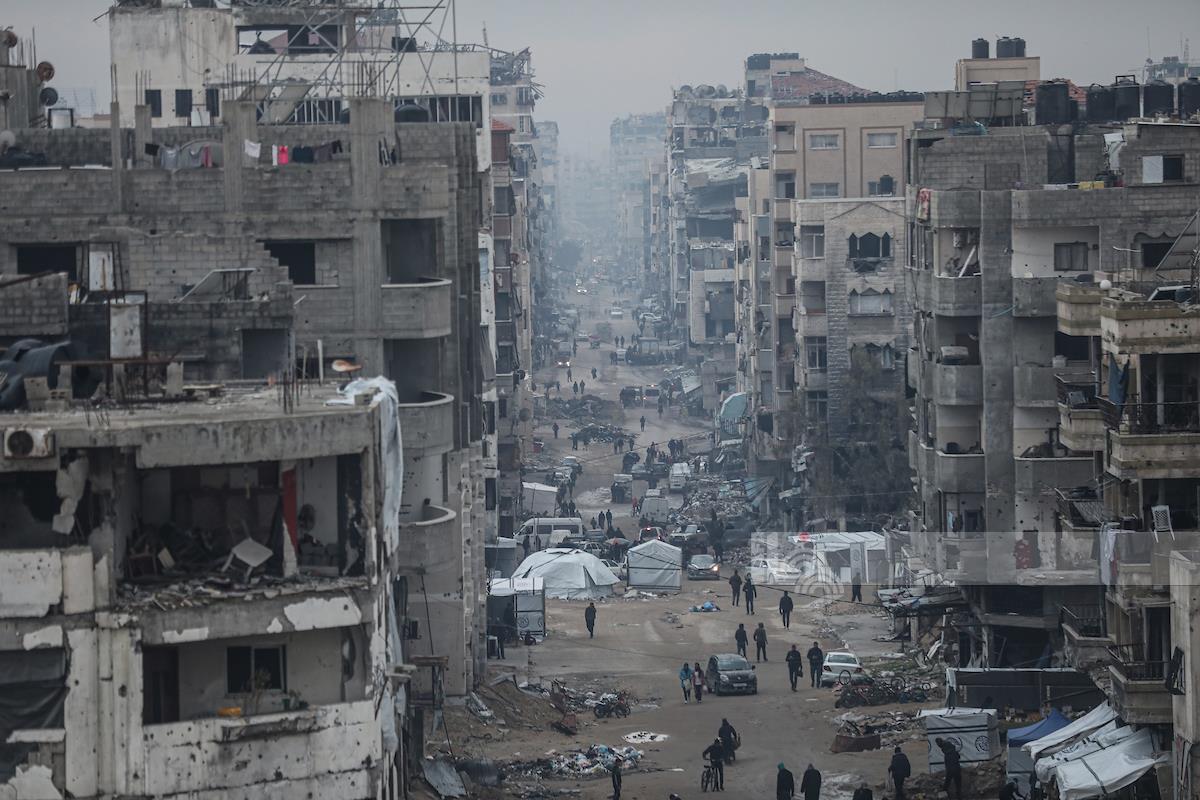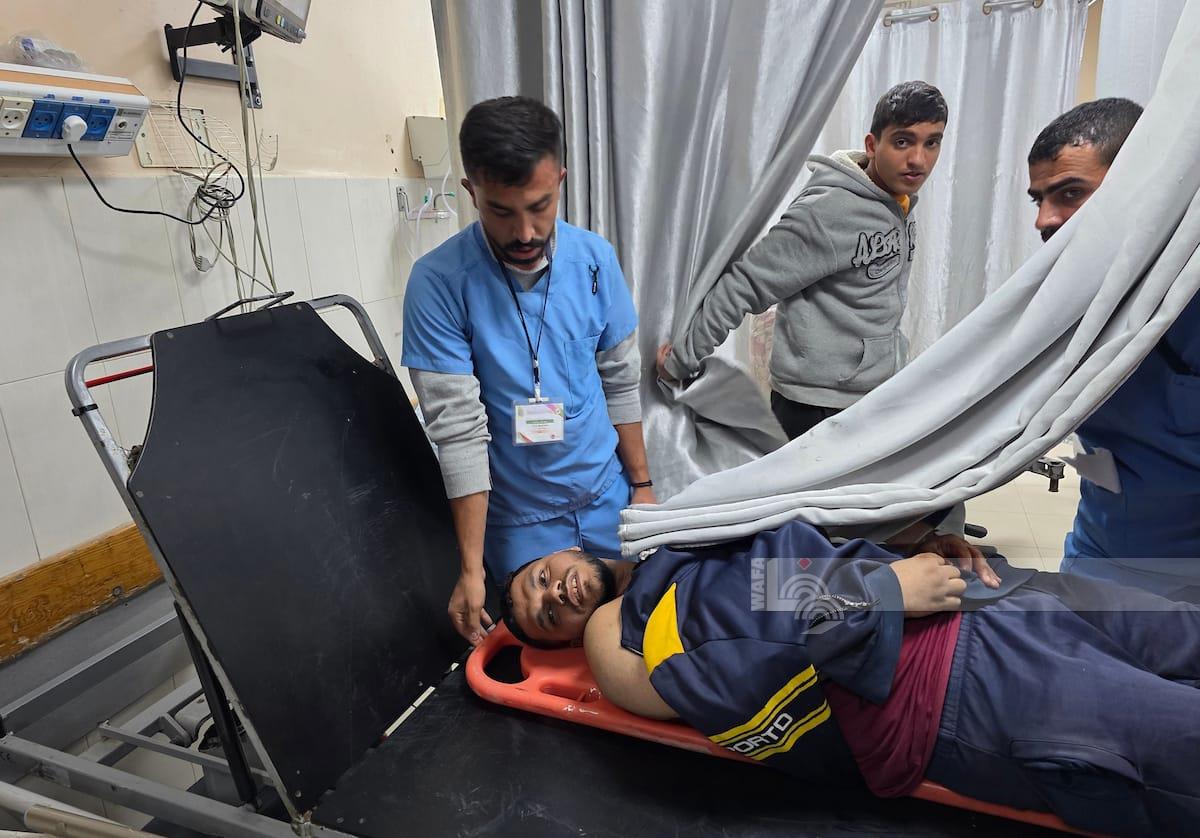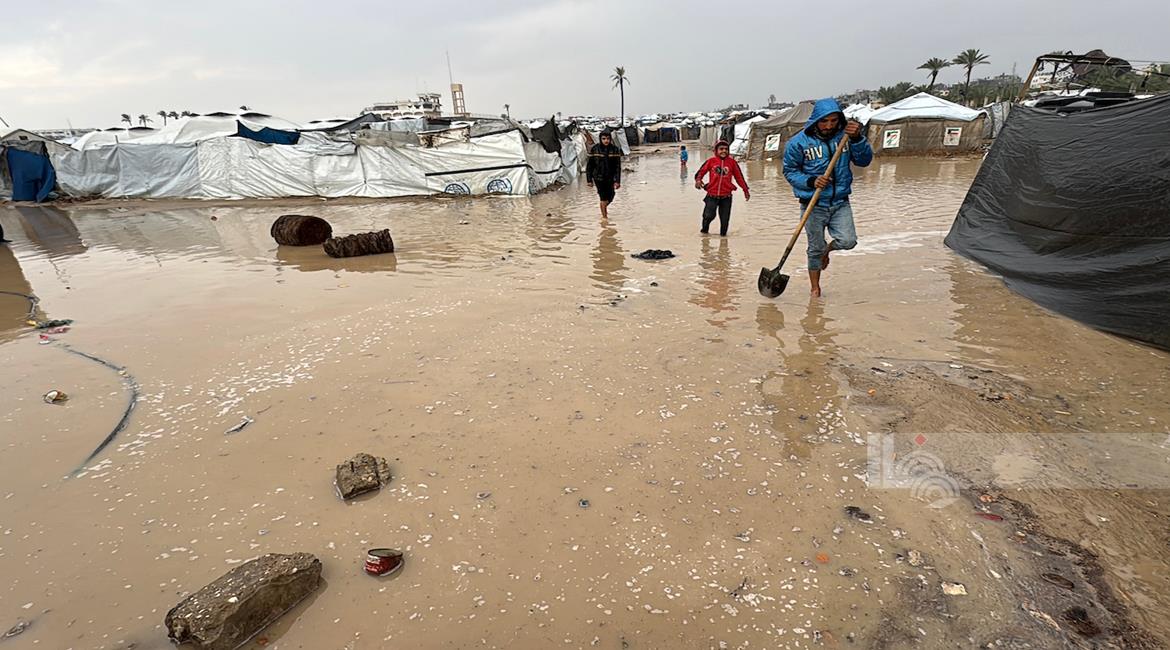By: Khaled Tayeh
RAMALLAH, July 1, 2025 (WAFA) – At only 13, Ammar Hamayel dreamed of one day becoming a headline name — not for tragedy, but as the next Muay Thai champion on the local and international stage. But the young athlete’s life was cut short far too soon, and his name now echoes in sorrow rather than celebration. His sudden killing left a deep void in the hearts of his coach and teammates, who now hold on tightly to every memory they shared with him.
On Monday evening, June 23rd, Ammar Hamayel — from the village of Kafr Malik, northeast of Ramallah — was riding his bike when he was shot by an Israeli soldier. He was left bleeding on the ground, with no medical aid, until he eventually succumbed to his wounds. Despite his killing, the occupation forces withheld his body for some time before finally returning it to the Palestinian authorities.
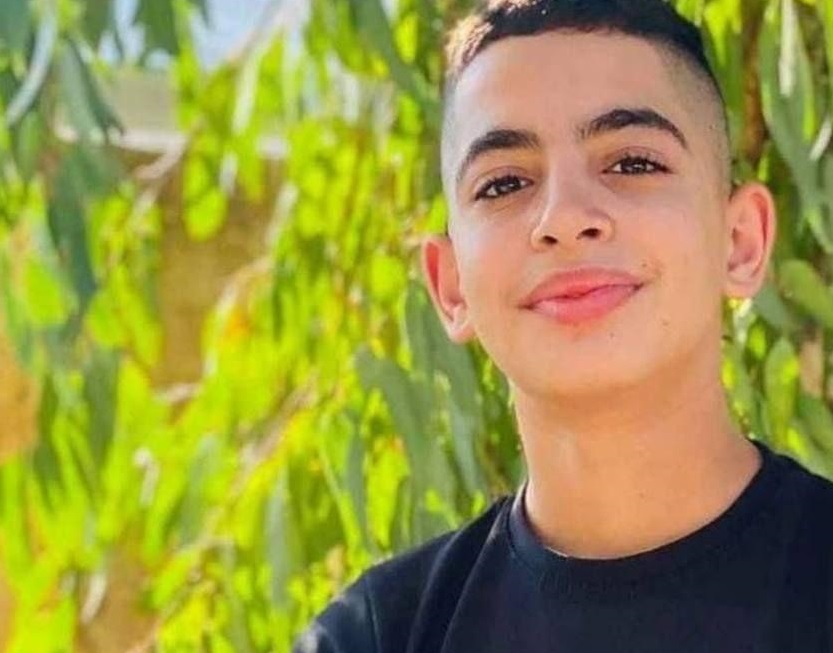
Ammar was a rising athlete who trained at Fighting Zone, a Ramallah-based Muay Thai club, where he dreamed of one day becoming a champion. Ahmad Abu Dukhan, the club’s lead coach and a well-known figure in the local sports community, remembers Ammar not only as a dedicated student, but as a teammate, a friend, and a young hero who's now an inspiration to all of his teammates who cherish forever cherish every moment they shared him.
“Ammar was an exceptional child — always smiling and laughing. I can’t even remember a time when he seemed sad or upset,” said Ahmad Abu Dukhan, his voice trembling with emotion. “He had this rare gift of lifting people’s spirits. If you were in a bad mood, Ammar could change that within minutes. He loved life. He was passionate, ambitious, and had a clear goal. And above all, he was incredibly polite.”
“As a fighter, he was fearless. He would step into the ring with anyone, even those stronger than him — he didn’t back down,” Abu Dukhan continued. “He was committed to his training and determined to become an international champion. Losing him as an athlete is heartbreaking — but losing him as a person, as a child we loved — that pain is even greater.”
Holding back tears, Abu Dukhan recalled the moment he learned Ammar had been killed. He described the initial shock, the disbelief he clung to, and the unbearable truth that eventually settled in.
“I was out shopping when Ammar sent me a message around 2:00 PM. I saw the notification and thought he was asking about the training schedule, like he usually did. I told myself I’d finish what I was doing and reply later,” he said quietly. “An hour later, I saw that the message had been deleted by Ammar. I still don’t know what he wanted to say. I regret not answering him right away. I was just… too busy.”
At 4:00 PM, Ammar’s aunt called. “She said, ‘They shot Ammar. They’re holding him, and we don’t know how serious it is.’ I froze. I still hadn’t replied to his message. I just said, ‘Are you sure? He messaged me two hours ago. Let me check the news.’”
“The first thing I did was message his mother. I told her, ‘I don’t know what happened, but Ammar is strong. No matter where he’s been shot, he’s going to pull through.’ I truly believed that.”
Half an hour later, Abu Dukhan’s phone rang again. He didn’t answer. Deep down, he already knew. He opened the news — and there was Ammar’s photo, attached to a breaking story.
“He was just a child. There were no confrontations. I was furious — devastated. Why did this happen?”
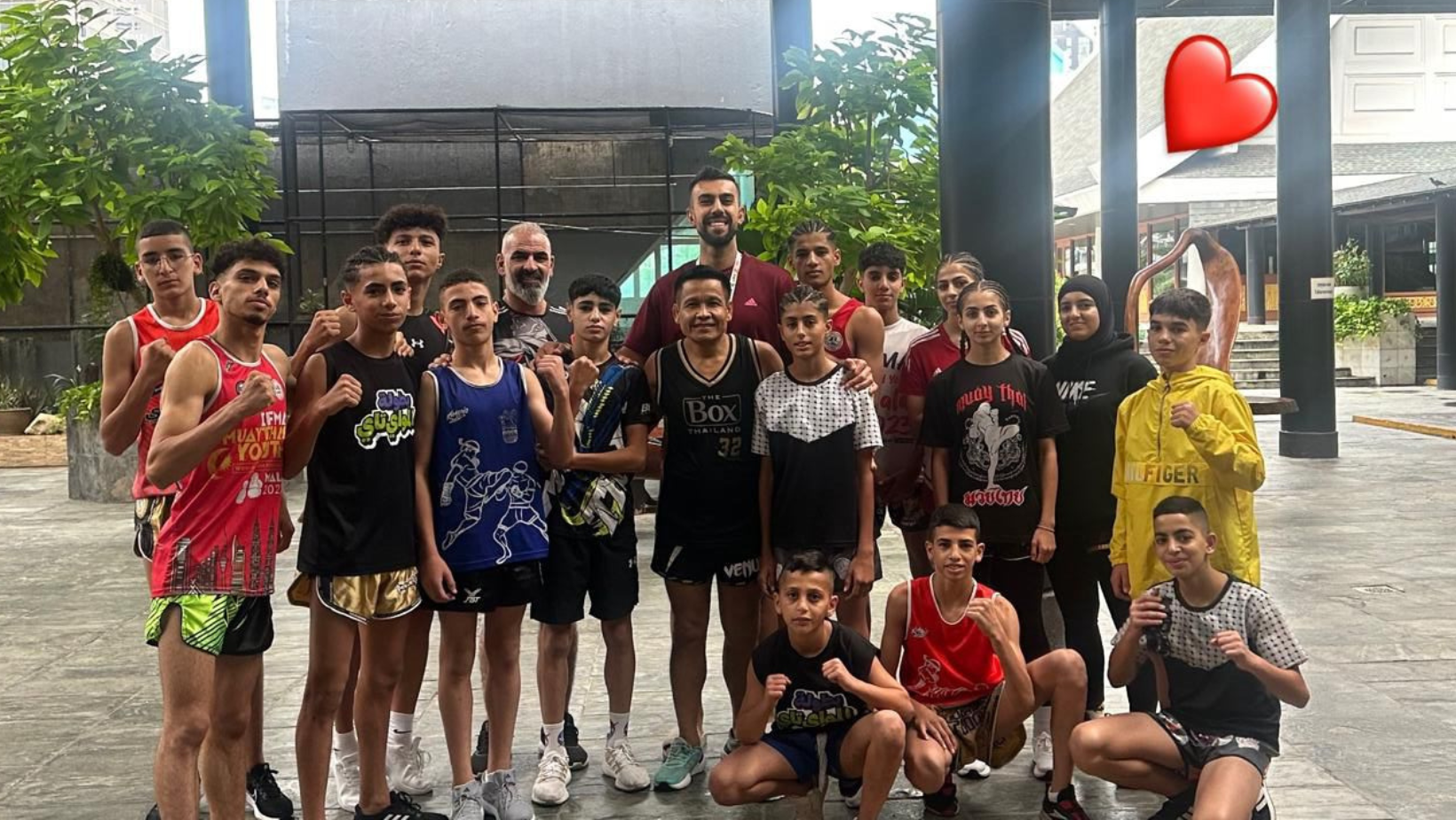
Later, he arrived at the Muay Thai club where he trains Ammar and the rest of the team. As he approached the staircase, he saw the entire group sitting together in silence, tears streaming down their faces. No one said a word.
“I went straight to my room, closed the door, and broke down,” he said. “No one saw me. I had to be their rock. They were already grieving. I couldn’t let them see me fall apart.”
He wanted to go to Ammar’s village, but was told the boy’s body had been transferred to the Ramallah Medical Compound, just a short distance from the club.
“As I walked there, my mind was filled with memories — I didn’t want to believe what was happening. It wasn’t real until I saw him, lying on that hospital bed,” Abu Dukhan said. His voice, once steady, fell to a whisper.
“I didn’t go near his body at first,” said Abu Dukhan. “I just stood there, watching his friends and teammates approach him — kissing him, weeping, saying their final goodbyes. I was frozen, in complete shock and silence. Then someone turned to me and said, ‘You need to stand up for the boy’s family and friends. We need you to be strong for us all.’”
But nothing could prepare him for what came next.
“The hardest moment was when Ammar’s mother walked into the room where her son’s body lay,” he said. “I’ll never forget it. I was the first person she saw. She was in a state of shock, crying out as she walked in. Then she looked at me and said, ‘Ahmad, you’re the last person he ever talked about. He said he wanted to go to your engagement party. He said he wanted to get back to training.’ That’s when I broke down. I couldn’t hold it in anymore.”
Abu Dukhan was just two days away from his engagement when Ammar was killed. At first, he wanted to postpone the celebration out of respect for Ammar and his family. But then, he received a message from Ammar’s mother that changed everything.
“She said, ‘Ammar had already picked out his outfit. He was excited to celebrate with you. If you cancel it, you’ll make him upset.’”
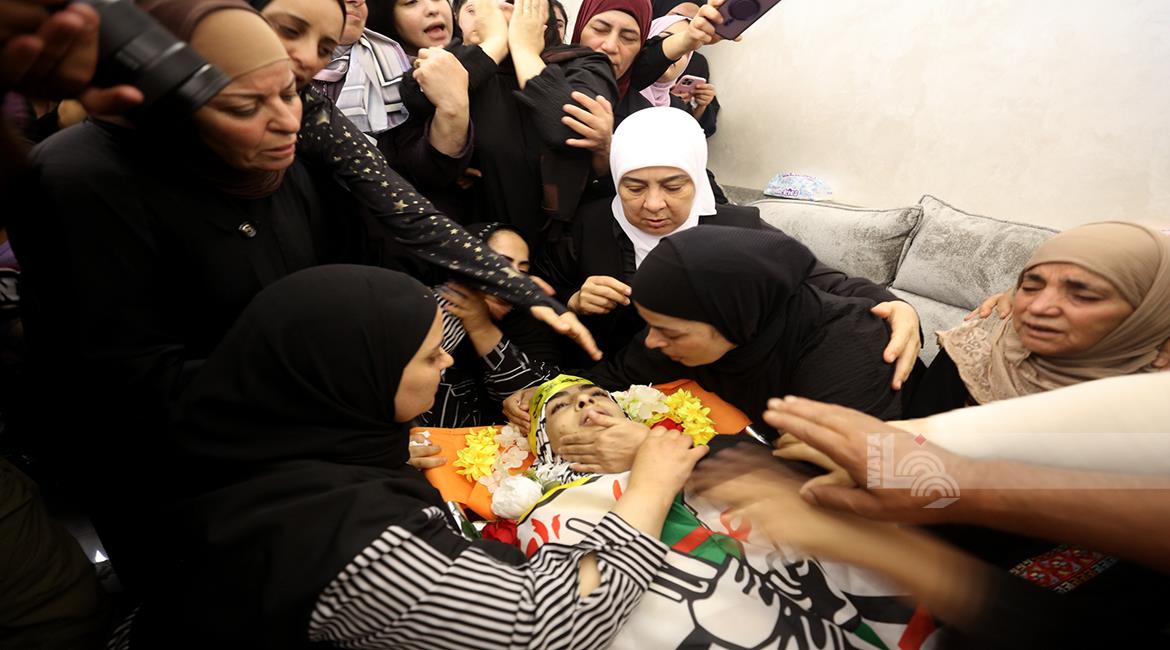
The next day, Abu Dukhan finally brought himself to kiss Ammar’s forehead. He whispered a final goodbye: “I wish you had called me.”
As the residents of Kafr Malik prepared for the funeral, Ammar’s mother made one final request. She turned to Abu Dukhan and said, “Please don’t let them put soil over my boy’s mouth when they bury him. I’m afraid it’ll choke him.”
Abu Dukhan described the pain of preparing for his engagement celebration amid such heartbreak. “It felt unreal. There was this mix of emotions — joy, sadness, guilt. Nobody really knows what’s inside us. We smile, but inside, we’re grieving.”
For Palestinians, life must go on — not because they choose to move on, but because they must. Under the constant weight of occupation and loss, delaying joy or routine might mean never seeing it again.
The International Federation of Muay Thai Associations (IFMA) expressed deep shock and sorrow upon learning of Hamayel’s tragic killing. In a heartfelt tribute posted on their website, the federation shared several photos of the young athlete taken during various championships he had proudly competed in. Alongside the images was a message honoring his memory — a gesture of respect for a life and talent taken far too soon.
“Ammar was more than an athlete. He was a son, a brother, a teammate, a dreamer. With a heart full of courage and a future full of promise, he trained with discipline, competed with pride, and carried the hopes of his nation with every step. His passion for Muaythai was matched only by the warmth and kindness he shared with all who knew him," the tribute said.
“To lose him to violence, to the brutality of war, is a tragedy beyond words. No child should ever fall to conflict. No child should pay the price for decisions made by others. We will forever cherish the memories we shared with Ammar — especially during our Youth Peace Camp. His energy, his laughter, his calls for peace, and his dream of a better world are etched in our hearts.” it added.
“In his honour, all IFMA flags will be flown at half-mast, and our social media profiles will go dark. On 25 June, during the final of the Asian Championships, the competition will pause to pay tribute to his memory,” it noted.
Abu Dukhan shared that Ammar’s younger brother now hopes to follow in his footsteps and begin training in Muay Thai. “Ammar will never be forgotten,” he said. “The shock of his loss was felt by everyone — even those who never knew him personally. Everyone loved him.”
The Muay Thai coach also took this moment to highlight a broader, painful truth: Palestinian athletes are left unprotected in the face of violence.
“I told the International Federation of Muay Thai Associations (IFMA) that many athletes in the West Bank and Gaza have been killed by Israeli forces,” he said. “Ammar was just a child, riding his bicycle. There were no confrontations. This was a crime. Even after his killing, they seized his phone and still haven’t returned it.”
“Ammar was a hero — and that scared them,” Abu Dukhan added. “Even at his young age, Ammar proudly represented Palestine. He spoke about it every chance he got. He used his social media to raise awareness about what was happening here. They saw that and felt threatened by him.”
Two of Ammar’s teammates were quick to share the heartbreak of losing not just a training partner, but a dear friend.
Ibrahim Jamous, one of Ammar’s closest friends, described him as “unimaginably kind.” He explained that Ammar couldn’t always make it to the club because he lived far from Ramallah — and with Israeli checkpoints and road closures, it was even harder. “We traveled together four times,” he said. “He was so brave. He was a hero.”
Ibrahim remembered receiving the news of Ammar’s killing while on his way to the club. “It felt like someone turned off the lights,” he said. “I didn’t know what to think anymore. We went to the hospital and said goodbye to him. It felt like I lost a piece of my heart. All of us did.”
Lilian Allis, another teammate, recalled Ammar’s unforgettable energy. “His laughter was out of this world,” she said. “He made all of us laugh. We traveled together several times, played cards — he was so intelligent, so brave. We all loved him like a younger brother.”
She paused, then added softly, “I couldn’t believe he was gone. We were just together. And suddenly… we were all just left in sadness.”
When asked if he had a message to share with the world about what’s happening, Abu Dukhan said he had none. “The world could have saved Ammar,” he said. “But they chose not to stand with Palestine.”
Instead, his words are for Ammar.
“Rest well, my darling. You always wanted to be a hero — and you’ve become one. The whole world knows your name now. We will never forget you.”
“One day,” Abu Dukhan said quietly, “I hope there will be justice — that the soldiers who took Ammar’s life in cold blood will be held accountable.”
K.T





